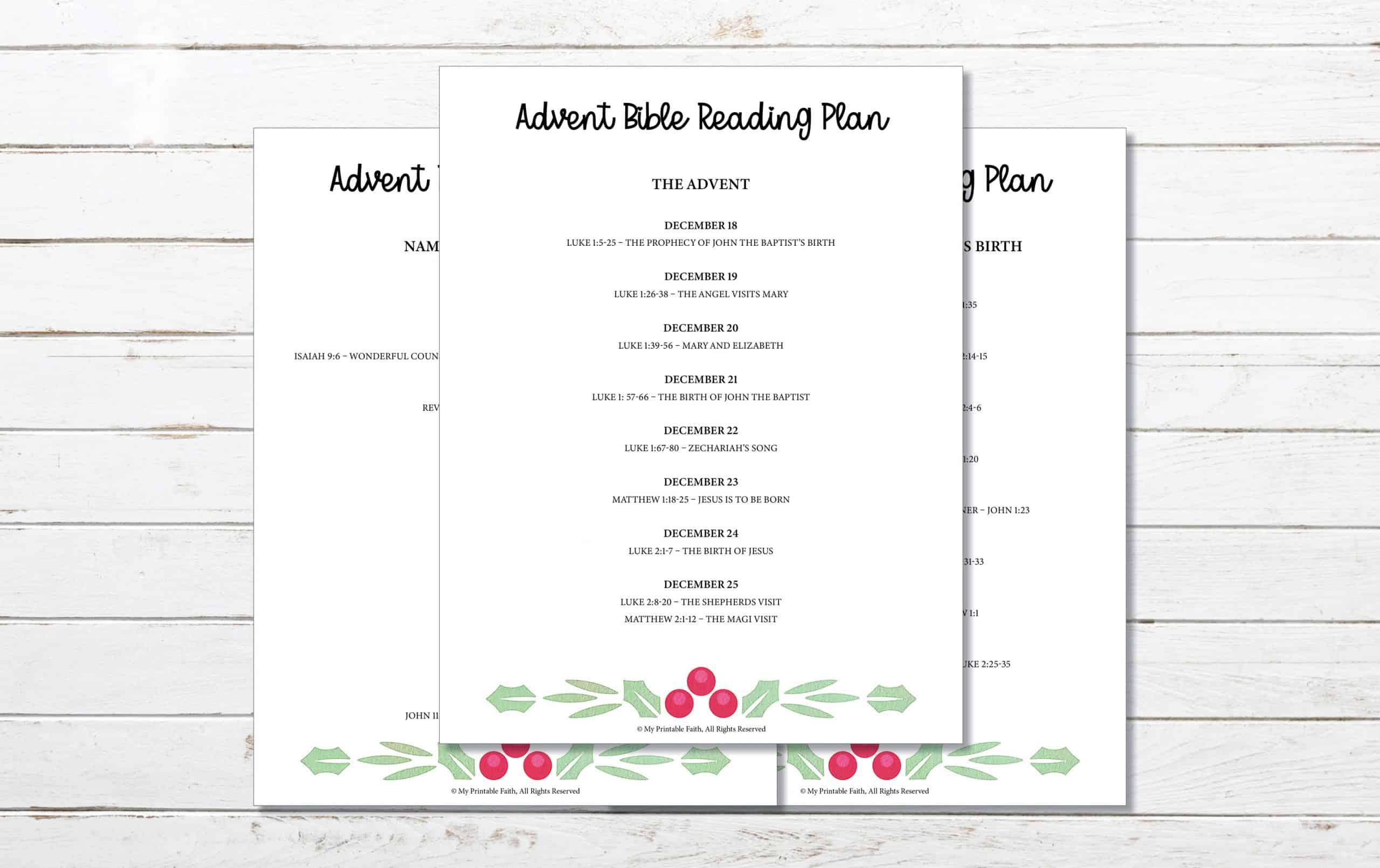There are many different names and titles for God in the Bible, each one revealing something unique about God and His character. Some of the most common names of God include Yahweh, Elohim, Adonai, and Jehovah. Each name has a special meaning and significance, providing insight into the nature of God. As you study the different names of God, you will gain a deeper understanding of who He is and what He means to you.
What are the different names and meanings of God in the Bible?
Yahweh
Yahweh is the most common name for God in the Bible, and it is generally used to refer to Him as the one true God. This name comes from the Hebrew word for “I am,” which is a declaration of God’s existence. It is also used to indicate His eternal nature, as He has always existed and will always exist. Yahweh is a powerful name that reflects the might and majesty of God.
Adonai
Adonai is a common name for God in the Bible, and it is generally used to refer to Him as the Lord Almighty. This name comes from the Hebrew word for “lord,” which indicates His role as the ruler of all things. Adonai is a powerful name that reflects the authority and power of God.
When you call on Adonai, you are acknowledging His role as the ruler of all things. He is the one who has ultimate authority and power over all of creation. When you call on Adonai, you are declaring your faith in His ability to rule and reign over all things.
Jehovah
Jehovah is a personal name for God. This name is used throughout the Old Testament, and it’s thought to mean “the one who is,” or “the existing one.”
Jehovah is used over 6,800 times in the Old Testament.
Jehovah Jireh
In the Old Testament, Jehovah-Jireh is first used in Genesis 22:14 when Abraham is about to sacrifice his son, Isaac. Abraham sees a ram that is caught in a thicket and sacrifices it instead.
The name Jehovah-Jireh means “the Lord will provide.” This name reminds us that God always provides for our needs, even when we don’t know it or understand it.
God provided for Abraham’s need by giving him a Ram to sacrifice instead of his son. He also provided for our greatest need by sending His Son, Jesus, to die on the cross for our sins. Because of what Jesus did, we can have forgiveness and eternal life.
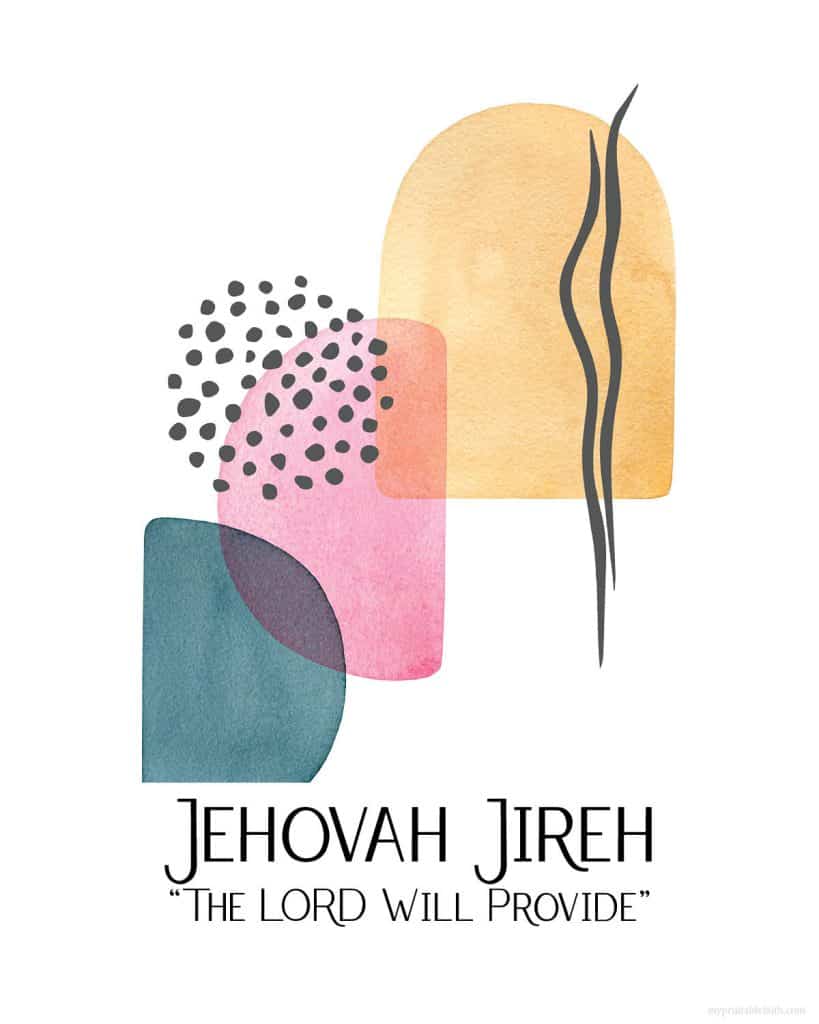
Jehovah Nissi
Jehovah-nissi is the name given to an altar that Moses built at the command of God, after the Israelites’ victory over the Amalekites in Exodus 17:8-16. The name Jehovah-nissi means “the Lord is my banner”, and refers to God’s protection of the Israelites in battle.
The story of Jehovah-nissi is a reminder that God is always with us, even in the midst of battle. When we are fighting for our lives, He is there to give us strength and courage. When we feel like we can’t go on, He gives us hope.
Jehovah-nissi is a reminder that no matter what we face in life, God will never leave us or forsake us.
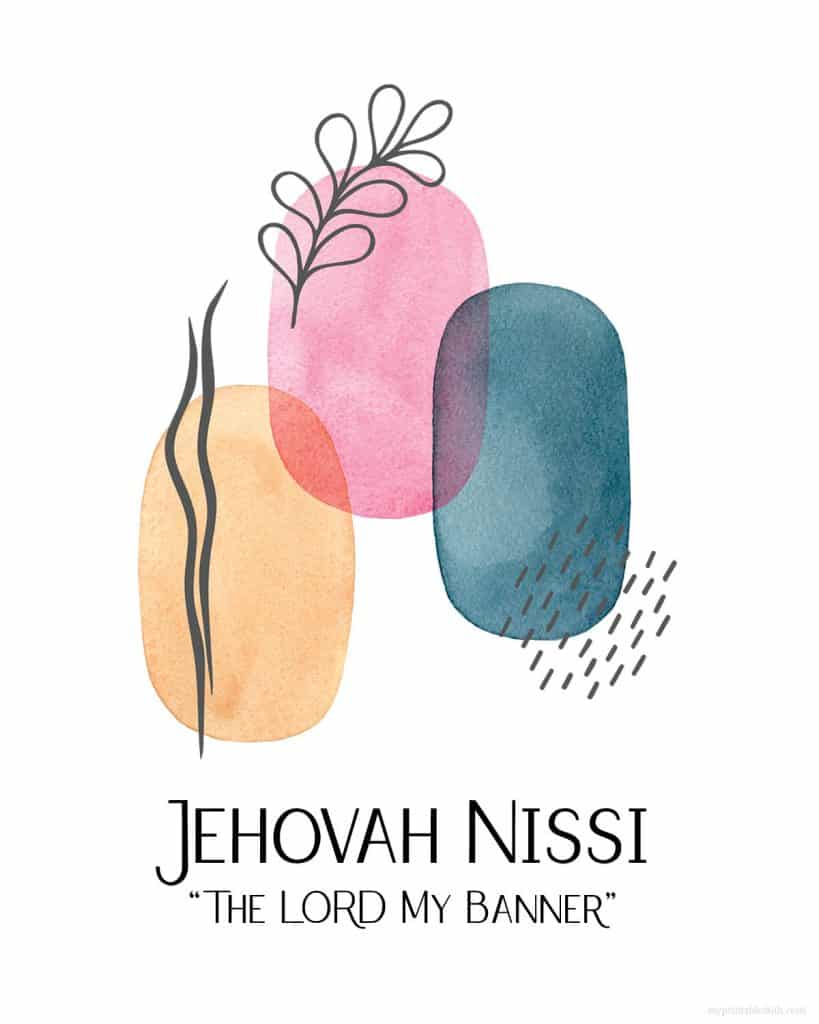
Jehovah Rapha
Jehovah Rapha is a Hebrew name for God that means “the Lord who heals.” It is found in Exodus 15:26, where God tells Moses that He is the one who will heal the Israelites from all their diseases. This promise of healing is repeated throughout the Bible, and it is still something that God offers to His people today.
Whether we are sick in body, mind, or spirit, Jehovah Rapha can bring us healing. He knows what we need and when we need it, and He is always willing to help us if we turn to Him. Sometimes His healing comes in miraculous ways, but often it comes through the loving care of others or simply by giving us the strength to carry on.
No matter what kind of healing we need, we can trust that Jehovah Rapha will provide it.
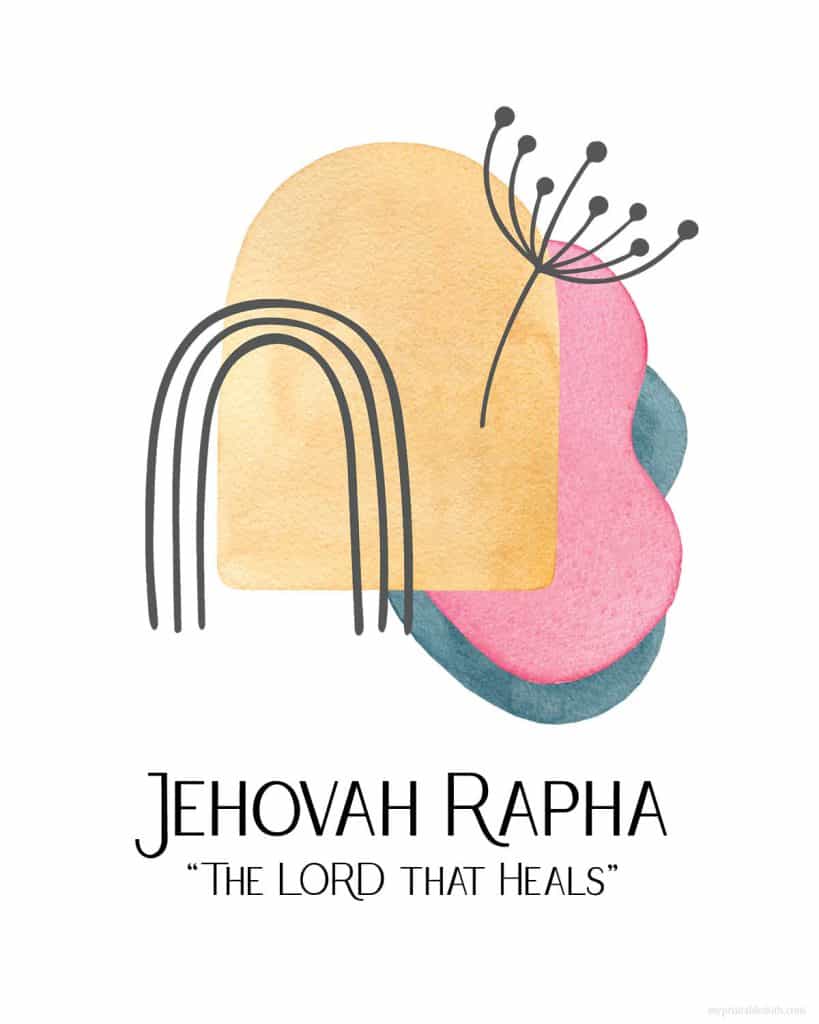
Jehovah Shammah
The Hebrew phrase Jehovah Shammah means “the Lord is There.” This name for God is found in the book of Ezekiel, specifically in chapter 48:35. The phrase is used in reference to the new city that God will establish, which is often seen as a symbol for the future hope of restoration and redemption.
For Christians, Jehovah Shammah can be seen as a reminder that God is always present, even in the midst of difficult times. It can be a source of comfort and hope, knowing that God is with us always. Even when we don’t feel His presence, we can trust that He is there with us.
Jehovah Shammah can also serve as a challenge for us to live our lives in such a way that reflects His presence.
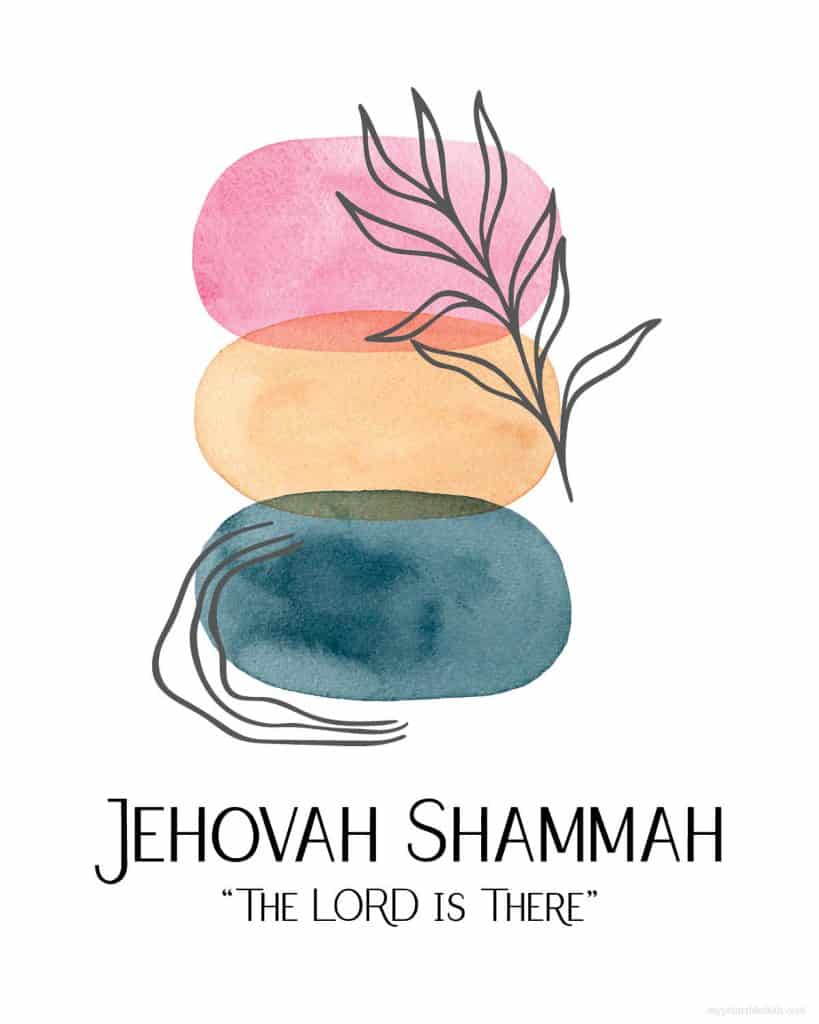
Jehovah Tsidkenu
The phrase “Jehovah Tsidkenu” means “the Lord our righteousness.” This phrase is used to describe God’s role as our advocate and judge. In the Hebrew Bible, Jehovah Tsidkenu is used as a title for God. This title emphasizes God’s role as the one who provides us with righteousness.
In Jeremiah 23:6, Jehovah Tsidkenu is used to describe how God will restore Israel after they have been exiled. The book of Ezekiel also uses this phrase to describe how God will save his people from their enemies. In both of these books, the phrase Jehovah Tsidkenu emphasizes how God is our righteousness and how he will save us from our enemies.
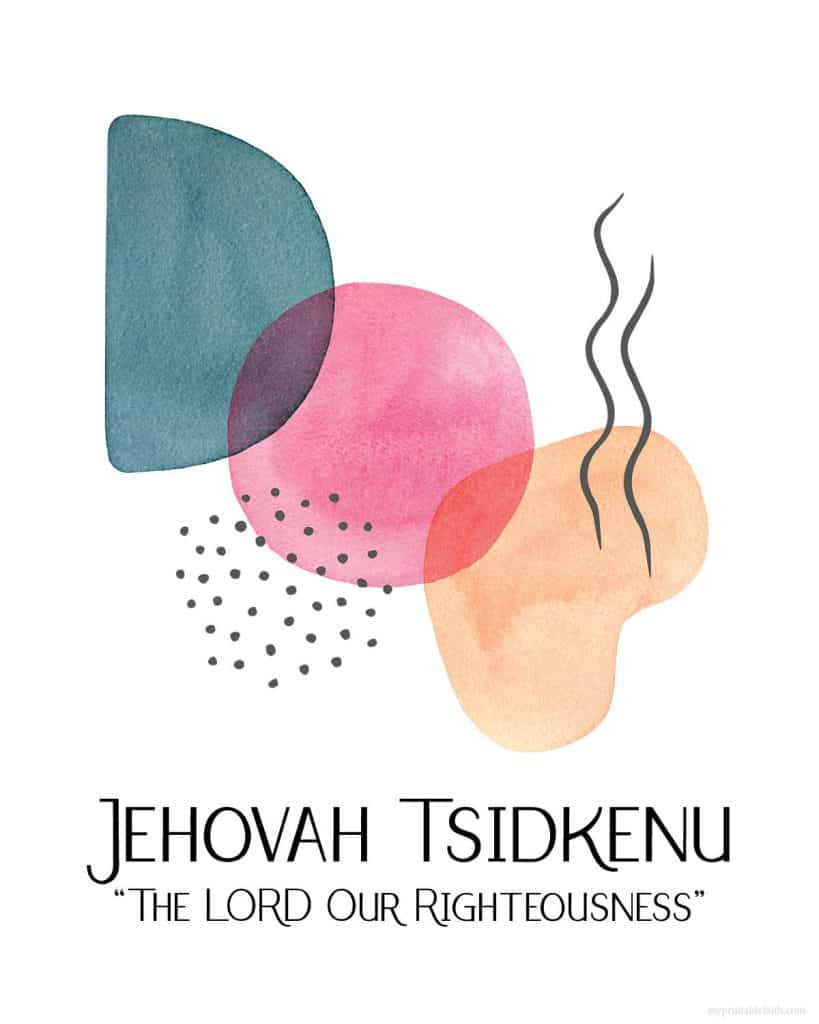
Jehovah Mekoddishkem
The Hebrew word Jehovah Mekoddishkem is derived from a verb meaning “to set apart, to sanctify.” The basic meaning of the name is “the Lord who sets apart” or “the Lord who sanctifies.”
This name appears in the Old Testament, specifically in Exodus 31. In this passage, God is instructing Moses to tell the Israelites that He has set them apart from all other people. They are to be holy because He is holy.
The implications of this name are that God has chosen the Israelites for a specific purpose. He has sanctified them and set them apart from all other nations. This choice comes with both privileges and responsibilities. As God’s chosen people, they are to represent Him well and obey His commands.
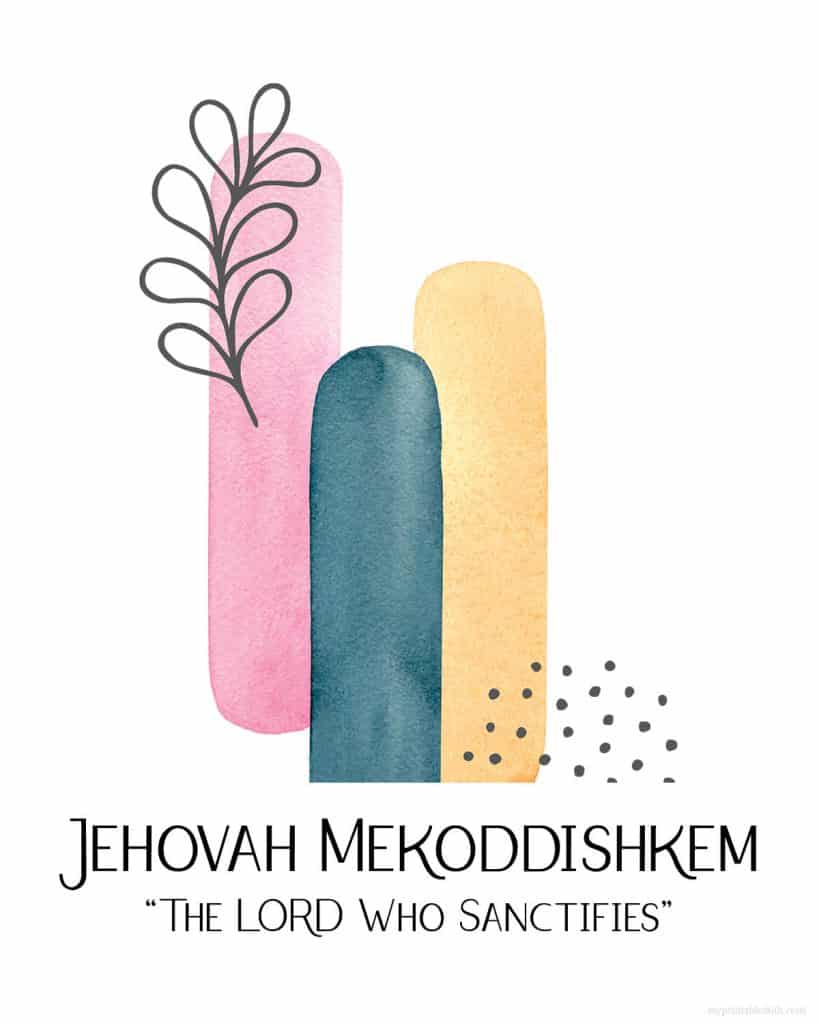
Jehovah Raah
Jehovah Raah occurs seven times in the Bible, most notably in Psalm 23:1.
The word Jehovah is derived from the Hebrew verb havah, meaning “to become” or “to come into being.” Raah comes from the root word ra’eh, which means “to see” or “to perceive.” Thus, Jehovah Raah can be translated as “the One who sees” or “the One who causes to be seen.”
In the context of Psalm 23, Jehovah Raah represents God’s care and provision for His people. He is the Good Shepherd who leads and protects His flock. This name for God is a source of comfort and hope for all who trust in Him.
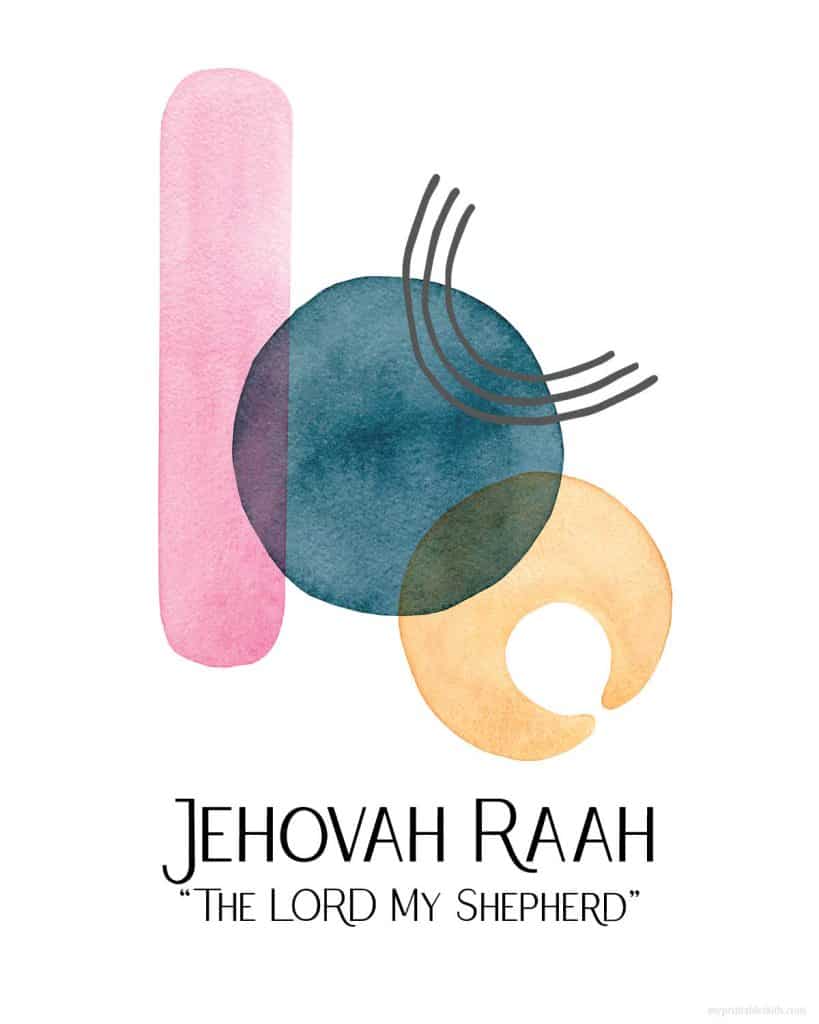
Jehovah Sabaoth
Jehovah Sabaoth is a Hebrew term that refers to God as the Lord of Armies or the Lord of Hosts.
So what does Jehovah Sabaoth mean? It refers to God as the ruler and protector of all armies and all people. He is the one who gives victory in battle and brings peace to his people. He is also the one who punishes those who disobey him and fight against him.
Jehovah Sabaoth is a powerful name for God, and it reminds us that he is always with us, no matter what we are facing in life.
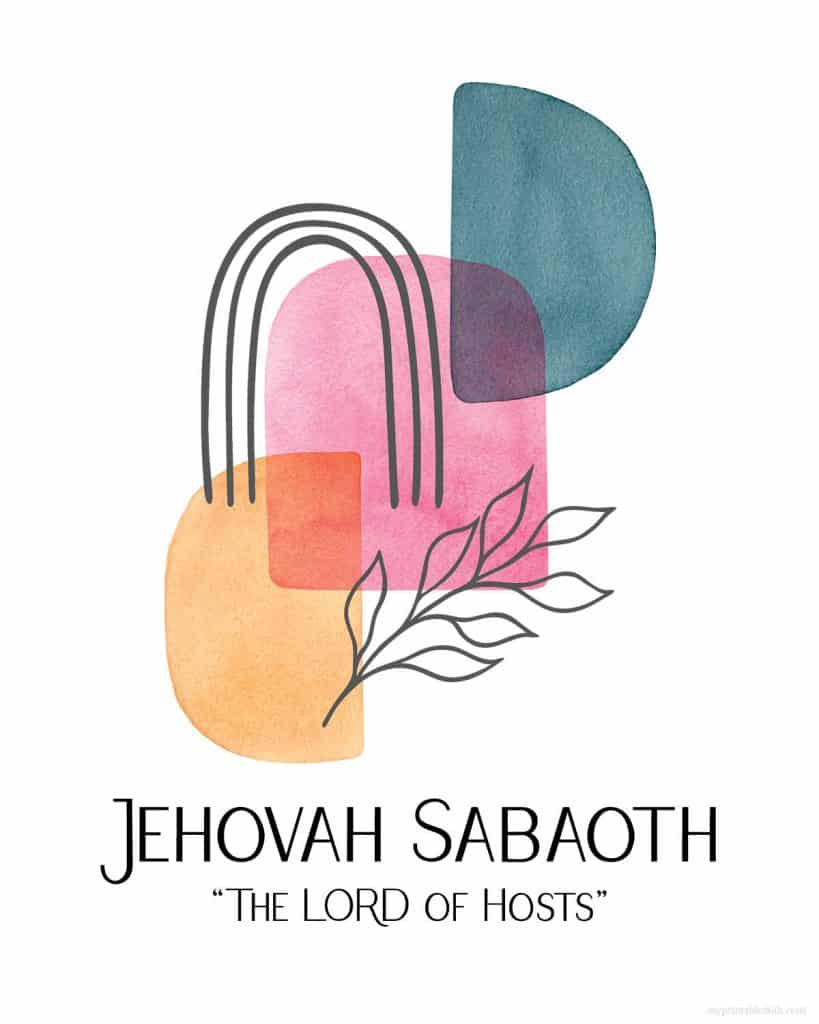
Elohim
Elohim is a powerful name for God that reflects His role as the one true God. This name comes from the Hebrew word for “God,” which indicates His role as the one who created everything. Elohim is a magnificent name that reflects the majesty and power of God.
Elohim is the name of God that is most often used in the Bible. It is a plural form of the word El, which means “god” or “power.” Elohim is used to refer to the one true God, as well as to false gods.
The name Elohim appears throughout the Bible, and it is often used in conjunction with other names for God. For example, Jehovah Elohim is the name for God that is used in the “shema,” which is the central creed of Judaism. This name reflects the fact that Jehovah is the one true God, and that He is to be worshipped above all others.
Elohim is a powerful and evocative name for God. It reflects His role as the creator and sustainer of all things. When we understand the meaning of this name, we can better appreciate the magnitude of who God is and what He has done for us.
El Shaddai
El Shaddai is a powerful name for God that reflects His role as the Almighty God. This name comes from the Hebrew word for “God,” which indicates His role as the one who created everything. El Shaddai is a magnificent name that reflects the majesty and power of God. He is the one who is above all things, and His power is unmatched. He is the one who provides for His people, and He is the one who protects them. El Shaddai is a powerful name that should be revered and respected.
El Shaddai by Amy Grant is a beautiful song that includes some of these names of God. If you haven’t heard it before you should definitely listen to it.
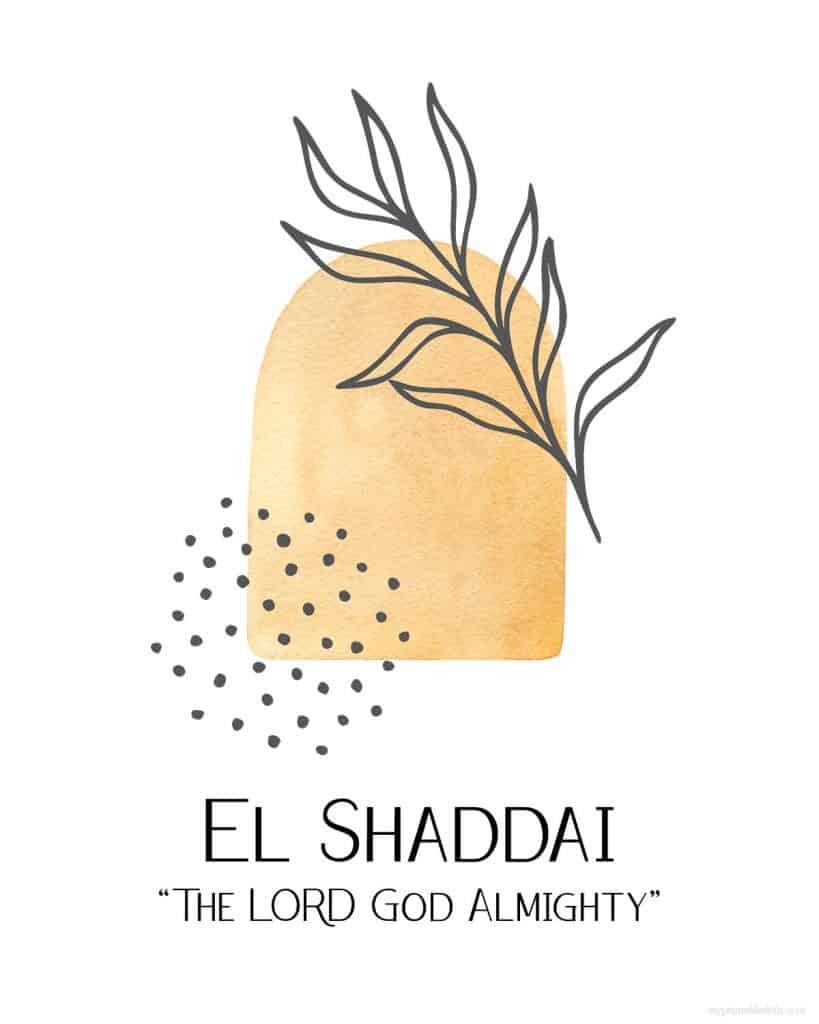
El Elyon
El Elyon is a powerful name that reflects the supremacy of God. It is first used in Genesis 14:18-20, where it is applied to God as the Most High. El Elyon is also used in Psalm 78:35 and Deuteronomy 32:8-9. It speaks of His authority and power as the Most High God. When we call upon El Elyon, we are acknowledging that He is the highest authority and that His power is unmatched. This name is a reminder that we can always rely on God’s strength and might.
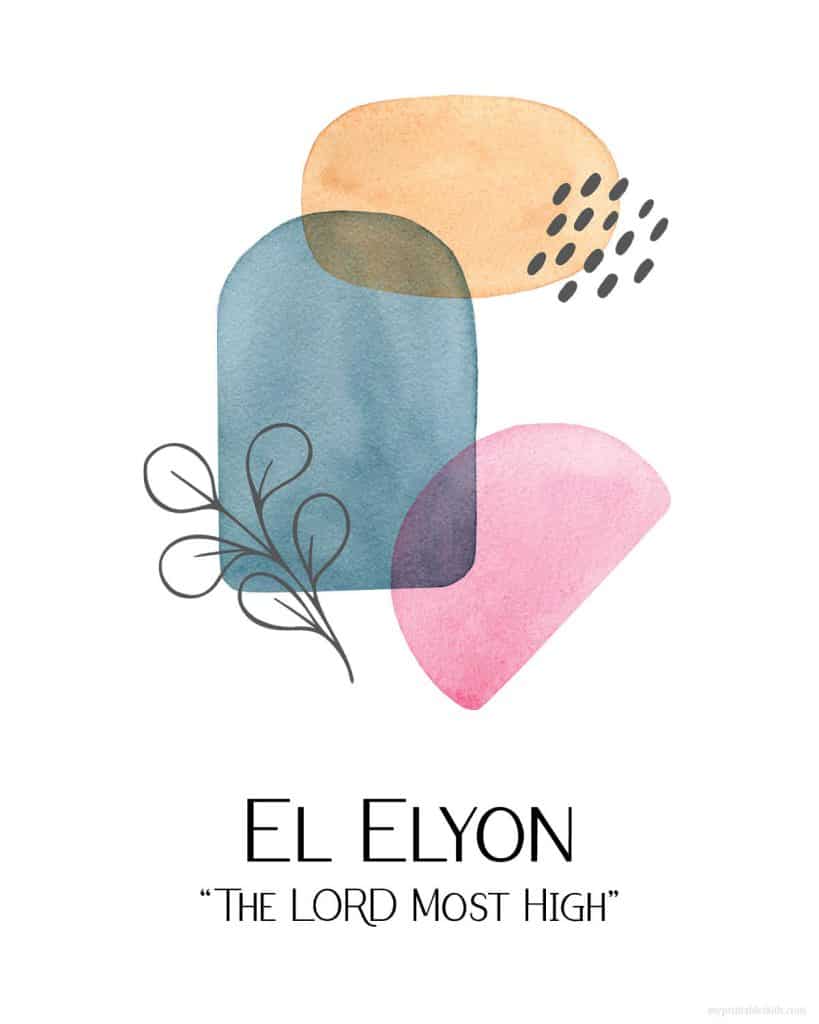
El Olam
El Olam is a name for God that is found in the Bible. It comes from the Hebrew word for “the eternal God,” and it is used to indicate His role as the one who exists forever. El Olam is a powerful name that reflects the eternity of God.
God is eternal, and His existence stretches back before time began. This is what the name El Olam reflects. It is a reminder that God is not bound by time or space. He is above all of creation, and His power is unmatched.
When we consider the name El Olam, we are reminded of the never-ending nature of God. He is and always will be exactly the same; yesterday, today, and forever. His endless love never ceases, and His kindness endures forever. If we put our trust in Him, we can be confident that He will always be there for us.
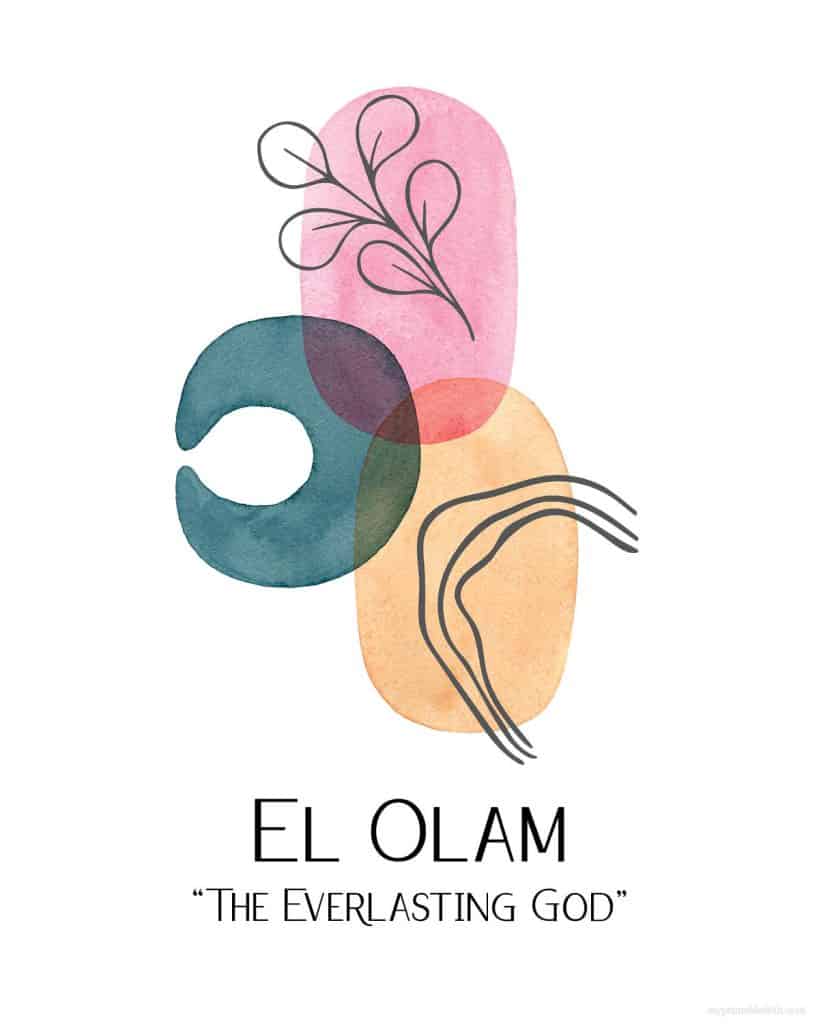
No matter what we call Him, God is the one who created everything and who provides for His people. If we put our trust in Him, we can be confident that He will always be there for us. I hope you enjoyed looking at some of the names of God.
The Names of God Printable Wall Art
When you want to remember the many names of God, what better way to do so than with a beautiful piece of wall art? These 8×10 printable artworks feature the different names of God. You can download them for free below and print them out at home to hang on your wall or keep in your Bible study notebook.
There are so many wonderful benefits to meditating on the different names of God. It helps us to know Him more intimately and understand His character better. As we reflect on each name, we can deepen our relationship with Him. So go ahead and download your free printable artwork today!



